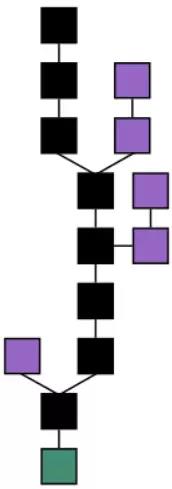Release date: 2017-03-14
Alphabet's DeepMind is one of the world's leaders in artificial intelligence research and its application to positive impact. The company is rapidly expanding its healthcare program and announced that it will build a tool called Verifiable Data Audit this year. This idea will allow hospitals, and even potential patients themselves, to see who is using the health care record, and for what purpose. The company plans to build a blockchain-style system that will carefully track patient data usage.
A blockchain is an intelligent peer-to-peer network that uses a distributed database to identify, propagate, and record information. It is a string of data generated by cryptographic methods. Each block contains several times of information. Verify the validity of its information (anti-counterfeiting) and generate the next block.

â–²Typical blockchain system ( Source: Wikipedia)
Like blockchains, DeepMind's system uses cryptographic math to keep accurate records of events that have occurred in the past. Each time a piece of data is used, a new code is generated based on all previous activities . This means that if someone later wants to go back and edit the previous records, for example to hide the fact that they use a piece of data for a specific purpose, this process will lead to disorder of each subsequent record and quickly get exposed.
The tool will initially be tested by DeepMind in the UK, including collaborators at the Royal Liberty Hospital in London. DeepMind says hospital staff will be able to see how the company uses data in real time and set up automatic alerts to indicate anomalous use. The hospital can provide access to patients in the future.
This development process will not be easy. Healthcare records are very fragmented in the UK, and if there are any opportunities to expand the system in the future, DeepMind will need to ensure that it can run on different database systems. It also needs to find ways to ensure that the data is properly recorded, in case the software is able to pass information to other programs during a single use.
Still, the work of DeepMind is worth it. It is rapidly developing a range of different health tools, including software that warns medical staff about early warning signs of disease, AI systems for diagnosing eye diseases, and machine learning methods that guide cancer treatment.
Mr. Mustafa Suleyman, co-founder of DeepMind, told The Guardian that the development of the new data audit tool is clearly a positive attempt to ensure that it leaves an incredible clue in the future: a clear and indelible track record.
Reference materials:
[1] DeepMind's New Blockchain-Style System Will Track Health-Care Records
[2] DeepMind official website
Source: WuXi PharmaTech
Diagnostic reagents can be divided into two categories: in vivo diagnostic reagents and in vitro diagnostic reagents. It is mostly a reagent for detection by the reaction between antigen and antibody.
A: Classification of in vitro diagnostic reagents:
1. In vitro biodiagnostic reagents managed as drugs include:
1. Blood type and tissue type reagents;
2. Microbial antigen, antibody and nucleic acid detection reagents;
3. Tumor marker reagents;
4. Immunohistochemistry and human tissue cell reagents;
5. Human genetic testing reagents;
6. Biochips;
7. Allergy diagnostic reagents.
2. In vitro reagents managed as medical devices include:
1. Clinical basic test reagents;
2. Clinical chemistry reagents;
3. Blood gas and electrolyte determination reagents;
4. Vitamin determination reagents;
5. Cell histochemical stains;
6. Autoimmune diagnostic reagents;
7. Microbiological test reagents.
B: According to medical test items, clinical diagnostic reagents can be roughly divided into clinical chemical test reagents, immunology and
Serological testing reagents, hematological and cytogenetic testing reagents, microbiological testing reagents, body fluid excretion
Detection reagents, genetic diagnosis reagents, etc. Among them, the market share of clinical chemistry
The largest, close to 34%; followed by the immunology market, accounting for about 29%. Novel immunodiagnostic reagents and genetic diagnostic tests
The reagent was developed in the late 1980s, and it is the most common diagnostic reagent for all current diagnostic reagents, regardless of technology or market.
The fastest growing product.
Urine Rapid Test Kit,Rapid Test Kit 6-Panel,Toxoplasma rapid test kits,Fecal Occult Blood Test
Jilin Sinoscience Technology Co. LTD , https://www.contoryinstruments.com